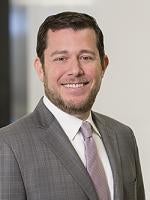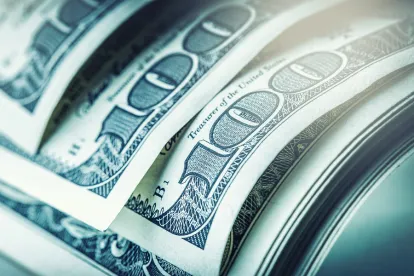In Travelers Cas. & Sur. Co. of Am. v. PG&E, 549 U.S. 443 (2007), the Supreme Court held that bankruptcy law does not disallow a post-petition unsecured claim for attorney’s fees to the extent such claim is authorized by a pre-petition contract and not otherwise expressly disallowed. That pronouncement should have stopped all future litigation over the issue. That has not been the case.
Recently, the Fourth Circuit confronted this very issue in SummitBridge Nat’l Invs. III, LLC v. Faison, 915 F.3d 288 (2019). The facts of SummitBridge are straightforward. The debtor, Faison, executed three promissory notes to his lender, which notes were secured by deeds of trust on the debtor’s real property. Faison commenced a bankruptcy case and the lender filed proofs of claim. The lender subsequently sold its interest in the promissory notes and claims to SummitBridge National Investments III, LLC. The debtor then proposed a plan which provided that SummitBridge’s claims would be allowed as secured claims in the amount of principal, interest, pre-petition attorney’s fees and a certain portion of the post-petition interest and attorney’s fees. The plan, however, precluded SummitBridge from recovering any post-petition attorney’s fees after it had received the value of the underlying collateral. Regardless, SummitBridge filed and pursued unsecured claims for post-petition attorney’s fees. The debtor’s objection to these claims was sustained by the bankruptcy court. The district court affirmed and SummitBridge appealed to the Fourth Circuit.
The Fourth Circuit acknowledged that courts have struggled with the allowance or disallowance of post-petition attorney’s fees and costs. But, the court said that the guidance provided by the Supreme Court in Travelers had gone a long way towards resolving the issue, and it reversed the district court.
Applying Travelers, the Fourth Circuit began with the presumption that “claims enforceable under state law will be allowed in bankruptcy unless they are expressly disallowed.” The debtor argued that, unlike in Travelers, sections 502(b) and 506(b) of the Bankruptcy Code expressly disallow post-petition unsecured attorney’s fees claims. The Fourth Circuit was unpersuaded by those arguments. With respect to section 502(b), the court looked to the section’s text and found that post-petition attorney’s fees were not expressly disallowed. Instead, the court stated that if SummitBridge had a claim for post-petition attorney’s fees as of the petition date (and provided that claim did not fall within the enumerated exceptions set forth in section 502(b)), the attorney’s fee claim would be allowed. The Fourth Circuit held that, contrary to the debtor’s argument that a claim for post-petition fees could not have existed on the petition date, the claim in fact existed on the petition date since (a) the Bankruptcy Code permits the allowance of contingent, unliquidated claims, and (b) the promissory notes giving rise to the claim were executed pre-petition and, because the debtor’s obligation to pay potential attorney’s fees arose pre-petition, the claims asserted by SummitBridge were pre-petition claims under section 502(b).
The Fourth Circuit dismissed the debtor’s section 506(b) argument by noting that such section has nothing to do with the allowance or disallowance of claims. Rather, that section address the classification of a claim as secured or unsecured. Therefore, since the Bankruptcy Code does not expressly disallow an unsecured claim for post-petition attorney’s fees and costs, such claims are allowable.
The Fourth Circuit is not the only Circuit to reach this conclusion. See, e.g., SNTL Corp. v. Ctr. Ins. Co. (In re SNTL Corp.), 571 F.3d 926 (2d Cir. 2009) and Ogle v. Fid. & Dep. Co., 586 F.3d 143 (9th Cir. 2019). And, the Third Circuit may confront the issue in a matter arising from the Tribune bankruptcy. In that case, Wilmington Trust Co., as indenture trustee, filed an unsecured claim for more than $30 million in post-petition attorney’s fees. The bankruptcy court disallowed the claim because it read sections 502(b) and 506(b) together to provide that “postpetition interest, attorney’s fees and costs are recoverable only by oversecured creditors.” In re Tribune Media Co., 2015 Bankr. LEXIS 3973, at *11 (Bankr. D. Del. Nov. 19, 2015). The district court reversed and ruled that section 506(b) does not limit the allowability of unsecured claims for contractual post-petition attorney’s fees. Wilmington Trust Co. v. Tribune Media Co. (In re Tribune Media Co.), 2018 U.S. Dist. LEXIS 199137, at *7 (D. Del. Nov. 26, 2018). The case is currently on appeal to the Third Circuit.
Despite the fact that parties continue to litigate the issue of the allowance of post-petition attorney’s fees claims, such issue has essentially been decided by the Supreme Court. Travelers clearly provides that, unless there is an express prohibition on allowance of a claim in the Bankruptcy Code, the claim is allowable if permitted under state law. With respect to unsecured claims for attorney’s fees and costs arising out of pre-petition contracts, there can be little question that such claims are allowable in or out of bankruptcy.




 />i
/>i

